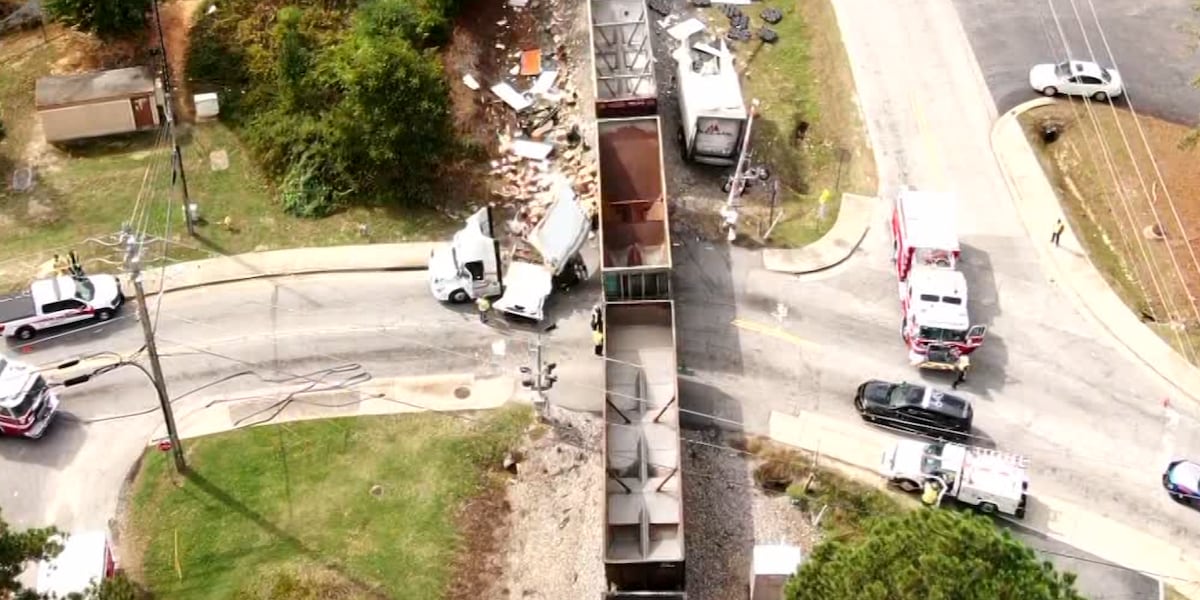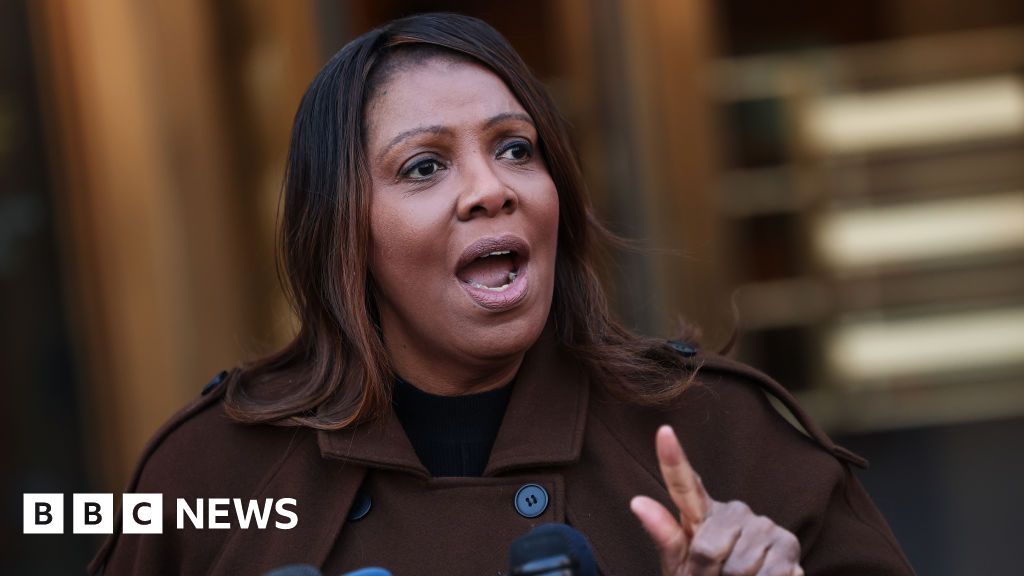Colorado
Colorado lawmakers gather for special session to respond to spiking property taxes, rising cost of living

Colorado lawmakers are set to gavel in Friday morning for a pre-Thanksgiving feast of tax policy as they try to tamp down the worst of spiking property taxes.
Much more will be on the agenda during the special session, which begins at 9 a.m. and is expected to last at least three days. The Democratic-majority General Assembly has outlined proposals to reduce elements of the property tax formula to provide relief, to flatten tax refunds due under the Taxpayer’s Bill of Rights so that all taxpayers receive an equal amount, to increase tax credits for low-income households and to provide more money for the state’s emergency rental assistance program.
This story will be updated throughout the day.
Property tax bills due early next year will reflect increases driven by a median 40% rise in property values across the state. Gov. Jared Polis called the special session late last week in response to voters’ overwhelming rejection of Proposition HH in the Nov. 7 election, charging lawmakers with approving tax reforms and programs that will apply only for a year.
Among the highlights of plans outlined by legislative leaders:
- Proposed cuts in the formula used to determine residential property taxes, with the deduction from a property’s value for tax purposes rising from $15,000 to $50,o00. The assessment rate, which is applied to determine the assessed value, or what’s taxable, would be reduced from 6.765% to 6.7%.
- Increasing the maximum value of the homestead exemption granted to seniors, disabled veterans and surviving spouses of disabled veterans.
- Sending out equal tax refunds to all Colorado taxpayers, a temporary change — also implemented last year — from the normal income-based system in which higher-income Coloradans receive more money back. The amount each taxpayer will receive is unclear, but earlier the state estimate under the now-defunct Prop. HH was $898.
- Doubling the state’s 25% matching credit provided to recipients of the federal Earned Income Tax Credit. The EITC sends money directly to low-income taxpayers, with more going to those with dependents.
- Adding $30 million to the state’s emergency rental assistance program to help renters who are at risk of eviction — with the caveat that it must be spent by June 30, when the state’s fiscal year ends.
Why does much of this sound familiar?
The property tax relief proposed by Democratic lawmakers is largely copied from Proposition HH, including the figures for the changes to the property value deduction and the assessment rate.
Unlike Prop. HH, the legislative proposal does not address commercial property rates. Prop HH would have lowered their assessment rates by .05 percentage points this year.
What does this mean for homeowners?
The aid likely won’t scale back the entire property tax increase facing many homeowners, and the effect will vary somewhat because of the formula changes. Each bill also will depend on mill levies that local governments control — the tax rates — and how much money a property is worth.
Lopping off a chunk of property value for tax purposes will have a bigger effect for lower-value properties.
According to an analysis by the liberal Colorado Fiscal Institute ahead of the fall election, without any changes, the owners of a $300,000 home whose value had increased to $405,000 from 2022 to 2023 would see their property taxes rise by about $415 next year. With the proposed formula changes under HH — identical to what’s proposed now — the bill would increase by about $100 instead.
How would this affect local governments?
The big changes in the new legislative package compared to Proposition HH are that its provisions would kick in only for a year, and there is less money to hand out as compensation to local governments that rely on property taxes to fund local services.
Any cuts to property tax collections will affect the budgets of local governments — though critics of the Democrats’ approach argue that they should make do with what in many cases will simply be a smaller increase in revenue.
The Democrats’ proposal would funnel state money to school districts and fire districts to make sure they get all the money that would be due to them if property tax rates were left unchanged. Lower-growth areas, which haven’t seen surging property values, also would receive state money to make up for the revenue loss caused by rate cuts.
Counties that experienced growth in property values of 13.5% or more — and thus will see the greatest potential boost in their property tax base — would be left out of the “backfill.”
How do lawmakers propose to pay for this?
Legislative leaders are looking to lean on $200 million set aside already in the general fund for property tax relief.
Gov. Jared Polis said Thursday morning that he’d also be willing to draw down the state’s 15% reserve by up to 1 percentage point, which amounts to about $150 million.
It’s unclear if that will happen. Legislative Democrats have lambasted Republicans’ proposal to tap into reserves to pay for property tax relief as irresponsible, but they didn’t answer when asked if it was completely off the table.
Lawmakers can also tap into the state’s budget surplus, or tax money collected over the cap set by the Taxpayer’s Bill of Rights. In a call with reporters Thursday afternoon, Democratic leaders said they were looking at the surplus for some direct tax credits primarily, such as the EITC credit match increase.
Those potentially would be in the $150 million range, which they predicted would have a minimal impact on total direct TABOR refunds that are estimated to top $3.2 billion. The roughly nearly $900-per-taxpayer refund estimate would hold if the surplus is left relatively untouched.
What’s the Republican alternative?
Republicans have launched their own plan to cut property taxes rates even more deeper, but with less money provided local governments to compensate for the effect on their revenue — and without touching the TABOR surplus.
The GOP lawmakers have aimed instead to use money from the state’s reserves. But the party is at a historic low point of representation in the Capitol, limiting its members’ influence.
Stay up-to-date with Colorado Politics by signing up for our weekly newsletter, The Spot.

Colorado
Small plane crashes at northern Colorado airport, Erie police say

Police are investigating after a small plane crashed Sunday afternoon near the runway at the Erie Municipal Airport in Weld County, according to the department.
The Erie Police Department first posted about the single-plane crash at 3:59 p.m. Sunday. Department spokesperson Amber Luttrell said the crash happened about 15 minutes before that.
Two people were on board the plane, Luttrell said. The extent of their injuries was not immediately available.
Additional information about the crash, including the cause and the plane’s flight information, was not immediately available Sunday.
The Federal Aviation Administration and the National Transportation Safety Board will investigate the crash, Luttrell said.
Neither agency immediately responded to requests for comment on Sunday.
This is a developing story and may be updated.
Sign up to get crime news sent straight to your inbox each day.
Colorado
Authorities arrest man who allegedly struck Colorado police officer, two vehicles and fled
Colorado
What’s Working: Robocalls are declining in Colorado but still number in the millions

Quick links: Comcast layoffs | Local fed workers update | Take the reader poll | More!
Coloradans fare better than most Americans when it comes to pesky robocallers, according to the latest data from YouMail, which has a free call-blocking app.
But at nine calls per capita last month — below the nation’s average of 12.3 — Colorado phones received an estimated 51.6 million robocalls in September. That per capita figure includes babies.
The problem is, said Danny Katz, executive director of Colorado Public Interest Research Group, many of us are getting way more annoying calls. And the number of robocalls in the state has doubled since 2016 despite laws requiring phone companies to adopt technology that authenticates a voice caller’s identity to prevent spoofing and scams.
While the technology doesn’t authenticate text messages, the FCC has other rules banning text messages sent by an autodialer.
The Federal Communications Commission has taken action. In August, the FCC kicked out 1,200 noncompliant voice service companies “effectively disconnecting them from (the) U.S. phone network.”
But in a new analysis of federal data, PIRG found that only 44% of more than 9,000 phone companies had fully installed the technology. Another 18% have it partially installed. And 31% haven’t installed it.
“Unfortunately, protecting consumers is a marathon and every time that we get to the next benchmark, oftentimes the scam artists are thinking, OK, what’s the new technology or new way that we can get around the rules and regulations?” Katz said. “But I do think every benchmark we hit is a higher bar for scam artists to have to pass. Even though it’s not working perfectly yet, I think there’s plenty of us who have seen a decrease in the number of robocalls and spam texts we have gotten over the last few years.”
Katz is talking about the phone companies in compliance, like T-Mobile, Verizon and other familiar consumer mobile services. Verizon has its Spam Alerts and Call Filter tools for landlines and wireless to help users identify suspicious callers and block them. T-Mobile has ScamShield. AT&T has ActiveArmor.
According to the broadband trade association US Telecom, on behalf of AT&T, the number of robocalls is actually going down. Even YouMail’s data shows that numbers have been in decline this year.
Still, “we recognize that illegal robocalls and scams do continue to be a scourge on our networks, which is why carriers have implemented security protocols,” the trade group said in a statement.
More to come on this topic. Are spam calls getting worse, better or have you even noticed? Take the reader poll to help us better understand the impact on Coloradans.

➔ cosun.co/WWrobocalls
Why Comcast is closing its Centennial HQ and laying off 302
Comcast this week told the state’s labor department that it will close its West Division headquarters in Centennial and layoff 302 employees as part of a major restructuring.
In a memo from Sept. 18, company leaders told employees they need to realign the company for growth. And something that’s not growing? Legacy cable TV and broadband businesses.
The company doesn’t even call it cable TV anymore, but rather, “residential connectivity and platforms.” In its second-quarter earnings report, Comcast lost 11% of its domestic video customers in a year, down by 1.4 million to 11.8 million customers. A decade ago, it had 22.3 million video customers.

Over the same decade, its broadband subscribers grew 40% to 31.5 million, as of June. But that is falling, too, and was down 1.6% in June, compared with a year ago, for a loss of 528,000 internet customers.
But Comcast’s revenues are growing, up 2.1% in the second quarter from a year earlier, thanks to its Universal theme parks and its mobile phone service. Net income nearly tripled to $11 billion, though that was largely due to selling its interest in Hulu to Disney for $9.4 billion.
The restructuring gets rid of divisions in order to focus on regions. If that sounds a little confusing, a Comcast spokesperson clarified Thursday that the company has three divisions: Central, West and Northeast.
The Centennial office, located at 9401 E. Panorama Circle, is the West Division headquarters. But all three divisions are closing. The Central division in Atlanta, is laying off 240 employees. The Northeast division in New Hampshire layoff total has not been confirmed.
But regions, which include other offices and Comcast operations in the U.S., will remain.
The city of Centennial is still home to several Comcast facilities, including an older building at 4100 E. Dry Creek. The aging facility, which existed before Centennial was incorporated in 2001, is the local headend where large satellite dishes help distribute video and is the metro Denver home of Comcast Technology Solutions.
Centennial city officials said in a statement that it “feels for those impacted workers,” but also understands “the need for our companies to restructure and recalibrate in order to remain competitive in a challenging economic environment.”
Neil Marciniak, Centennial’s director of Economic Development, said Comcast will still be the city’s largest private employer. Based on 2024 data, Comcast employed 2,500 people in Centennial, he said.
Colorado federal workers unemployment claims up 81% in a week
The federal shutdown continued to impact federal workers in Colorado with the numbers filing for unemployment growing 81% since last week to 1,119 since Oct. 1, according to the state labor department.
That includes folks who took deferred resignation earlier in the year and had their last day Sept. 30. But current employees, who haven’t been paid since the shutdown began, are now 18 days into the shutdown.
Companies are sharing information on what they’re doing to ease the financial burden, including:
Speaking of the government shutdown, here’s how What’s Working readers responded to last week’s poll on how the shutdown has affected your life. Check it out 🡻🡻
Sun economy stories you may have missed

➔ Dark money group that spent big in Colorado’s Democratic primaries approved funding for Vail retreat for state lawmakers, lobbyists. The Colorado Sun has learned that One Main Street Colorado signed off on a request for $25,000 from the Colorado Opportunity Caucus to fund hotel rooms. >> Read story
➔ Michael Bennet, Phil Weiser are amassing millions of dollars for their Democratic gubernatorial primary fight. The candidates had about $4.6 million in combined campaign cash to begin October. >> Read story
➔ Nederland fire erased a third of local businesses and with it 30% of town sales tax revenue. U.S. Rep. Joe Neguse, Gov. Jared Polis visited Caribou Village Shopping Center and promised help navigating access to government help >> Read story

➔ Colorado plans to fully digitize paper and analog land records, some dating back to the 1860s, by next year. A $2 fee from every property filing since 2016 has helped fund the state’s $21M effort to preserve paper and analog records for digital eternity >> Read story
➔ Subsidized flights to small Colorado communities will continue during shutdown — for now. Denver International Airport has the most federally subsidized essential air service routes of anywhere in the nation. That includes flights to Cortez, Alamosa and Pueblo. >> Read story
➔ From Brooklyn to Beulah, hippie beginnings to golden years, a retired couple returns to van life. Part of Colorado’s rapidly aging demographic, Dave and Helene Van Manen left their mountain home for a more practical future — on their own terms >> Read story
Other working bits

➔ Dollar General agrees to pay $400,000 fine for pricing inaccuracies. The settlement comes after the state attorney general’s office sent investigators to stores in Milliken and Loveland in 2023 and found that more than 2% of item prices advertised on shelves rang in differently at the cash register. The AG’s office continued to inspect stores all over the state and found that 12 of 18 inspections charged a higher price at the register.
Dollar General, which has 70 stores in Colorado, denied the allegations but agreed to the settlement, which also requires the retailer to do price audits at each store for the next three years, according to terms. >> View settlement
➔ There are 157,819 job openings on state’s job board. But of those, nearly one-third are remote or out of state, according to the state labor department. As of Oct. 15, 45,880 were out of state and 5,522 were remote. The top company posting jobs? Oracle, with 10,153 openings. Registration to the state’s job board, at connectingcolorado.gov, is required for those collecting unemployment checks. >> Hunt for a job
➔ Pueblo recycler named to Cleantech 50 watch list. That’s a notable honor for Driven Plastics, which takes unwanted plastic bags or that shrink wrap that companies excessively use and turns it into an additive to make asphalt roads last longer. For each mile of one lane, the Pueblo manufacturer recycles up to 10 tons of that thin plastic. >> Earlier story
Got some economic news or business bits Coloradans should know? Tell us: cosun.co/heyww
Thanks for sticking with me for this week’s report. As always, share your 2 cents on how the economy is keeping you down or helping you up at cosun.co/heyww. ~ tamara
Miss a column? Catch up:
What’s Working is a Colorado Sun column about surviving in today’s economy. Email tamara@coloradosun.com with stories, tips or questions. Read the archive, ask a question at cosun.co/heyww and don’t miss the next one by signing up at coloradosun.com/getww.
Support this free newsletter and become a Colorado Sun member: coloradosun.com/join
Corrections & Clarifications
Notice something wrong? The Colorado Sun has an ethical responsibility to fix all factual errors. Request a correction by emailing corrections@coloradosun.com.
-

 Augusta, GA1 week ago
Augusta, GA1 week ago‘Boom! Blew up right there’: Train slams into semi in Grovetown
-

 Alaska5 days ago
Alaska5 days agoMore than 1,400 seeking shelter as hundreds wait to be evacuated after catastrophic Western Alaska storm, officials say
-

 Education1 week ago
Education1 week agoVideo: 3 Former College Teammates Reunite on Rangers Coaching Staff
-

 North Carolina1 week ago
North Carolina1 week agoGuide to NC State Fair 2025: Tickets, transportation, parking, new rides and special event days
-

 Education1 week ago
Education1 week agoNearly 20 Percent Fewer International Students Traveled to the U.S. in August
-

 News1 week ago
News1 week agoWhat we know about the charges against New York’s Attorney General Letitia James
-

 World1 week ago
World1 week agoAlbanian judge killed in courtroom shooting amid growing anger over justice system reforms
-

 News5 days ago
News5 days agoTrump Halts Billions in Grants for Democratic Districts During Shutdown




















